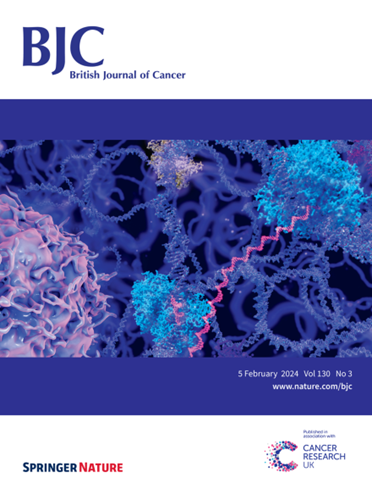The long-lasting impacts of the COVID-19 pandemic on population-based cancer survival: what are the implications for data analysis?
IF 6.4
1区 医学
Q1 ONCOLOGY
引用次数: 0
Abstract
Monitoring trends of cancer incidence, mortality and survival is vital for the planning and delivery of health services, and the evaluation of diagnostics and treatment at the population level. Furthermore, comparisons are often made between population subgroups to explore inequalities in outcomes. During the COVID-19 pandemic routine delivery of health services were severely disrupted. Resources were redeployed to COVID-19 services and patient risk of COVID-19 infection required serious consideration. Cancer screening services were paused, the availability of healthcare providers was reduced and, in some cases, patients faced difficulty in accessing optimal treatment in a timely manner. Given these major disruptions, much care should be taken when interpreting changes in cancer survival estimates during this period. The impact on cancer incidence and mortality statistics that have already been reported in some jurisdictions should drive further thought on the corresponding impact on cancer survival, and whether any differences observed are real, artificial or a combination of the two. We discuss the likely impact on key cancer metrics, the likely implications for the analysis of cancer registration data impacted by the pandemic and the implications for comparative analyses between population groups and other risk factor groups when using data spanning the pandemic period.

COVID-19 大流行对人群癌症存活率的长期影响:对数据分析有何意义?
监测癌症发病率、死亡率和存活率的趋势对于规划和提供保健服务以及评价人口一级的诊断和治疗至关重要。此外,经常在人口亚组之间进行比较,以探索结果的不平等。在2019冠状病毒病大流行期间,常规卫生服务的提供严重中断。资源被重新部署到COVID-19服务中,需要认真考虑患者感染COVID-19的风险。癌症筛查服务暂停,医疗保健提供者的可用性减少,在某些情况下,患者难以及时获得最佳治疗。考虑到这些主要的干扰,在解释这一时期癌症生存估计的变化时应该非常小心。一些司法管辖区已经报告的对癌症发病率和死亡率统计数据的影响应该促使人们进一步思考对癌症生存的相应影响,以及观察到的任何差异是真实的、人为的还是两者的结合。我们讨论了对关键癌症指标的可能影响,对受大流行影响的癌症登记数据分析的可能影响,以及在使用跨越大流行时期的数据时,对人口群体和其他风险因素群体之间的比较分析的可能影响。
本文章由计算机程序翻译,如有差异,请以英文原文为准。
求助全文
约1分钟内获得全文
求助全文
来源期刊

British Journal of Cancer
医学-肿瘤学
CiteScore
15.10
自引率
1.10%
发文量
383
审稿时长
6 months
期刊介绍:
The British Journal of Cancer is one of the most-cited general cancer journals, publishing significant advances in translational and clinical cancer research.It also publishes high-quality reviews and thought-provoking comment on all aspects of cancer prevention,diagnosis and treatment.
 求助内容:
求助内容: 应助结果提醒方式:
应助结果提醒方式:


